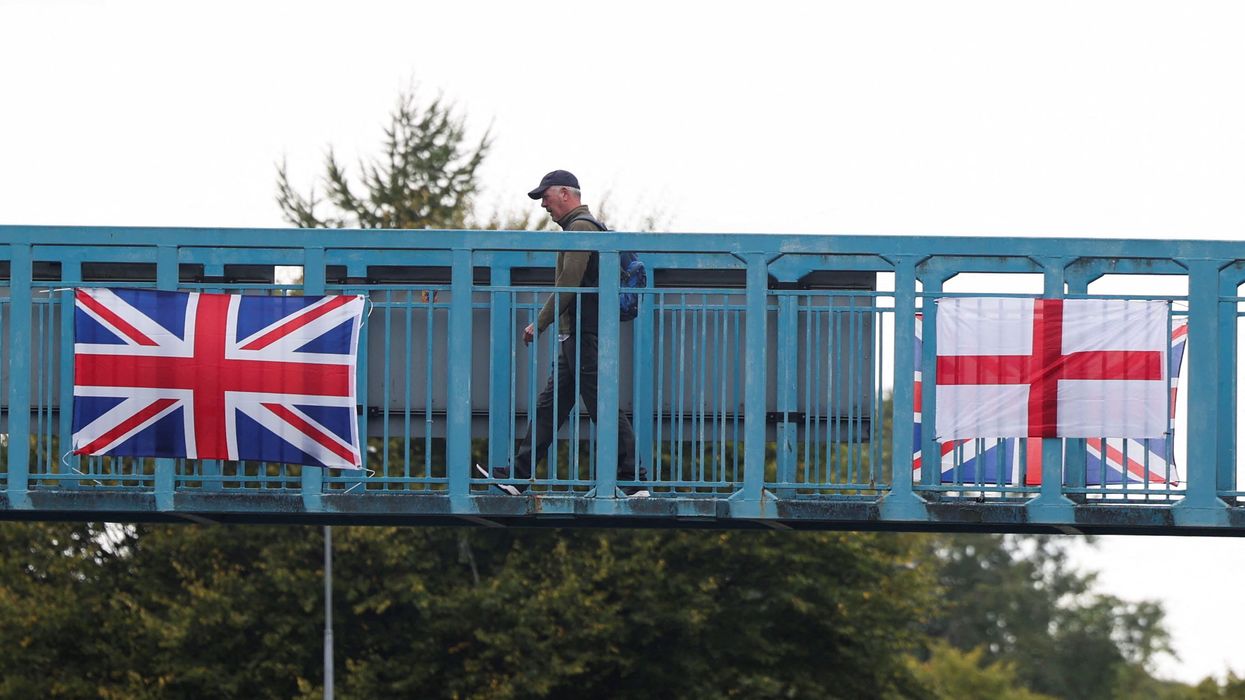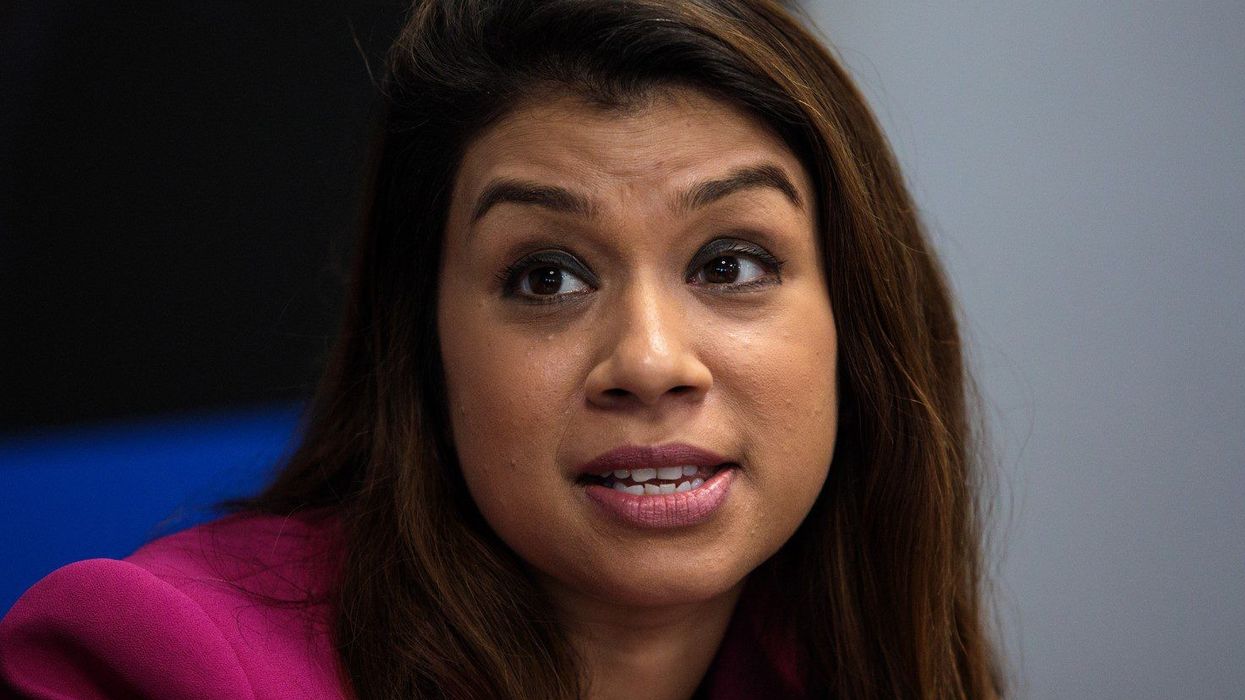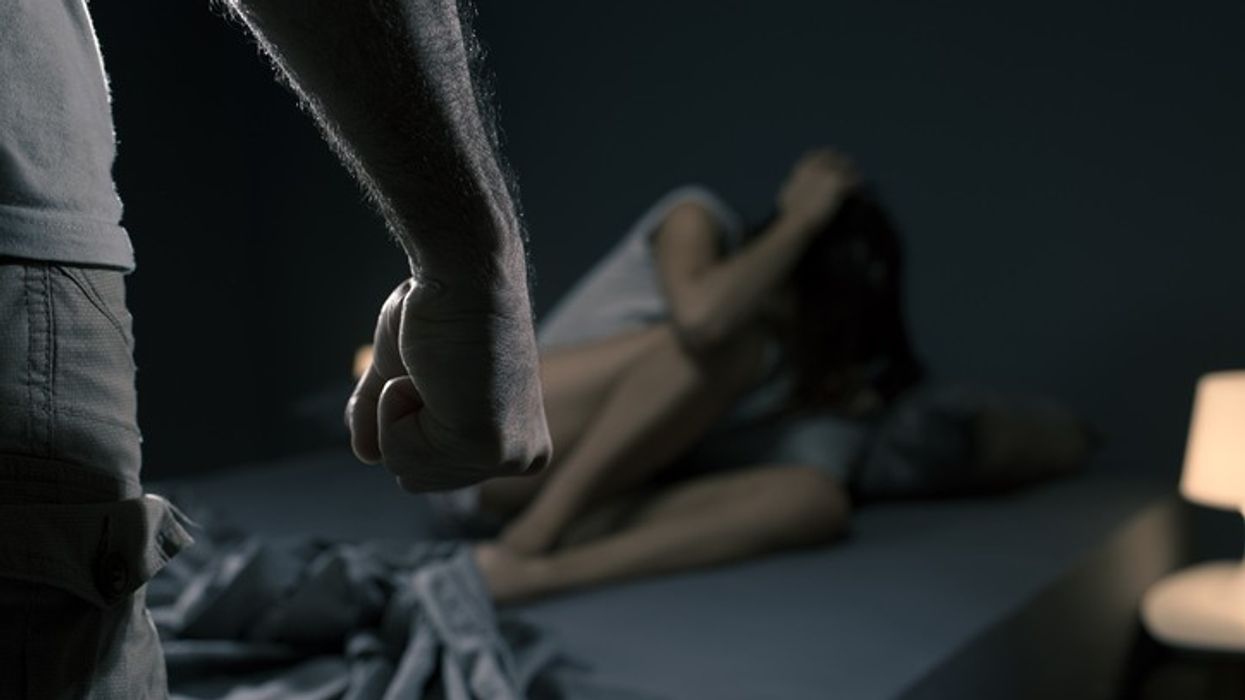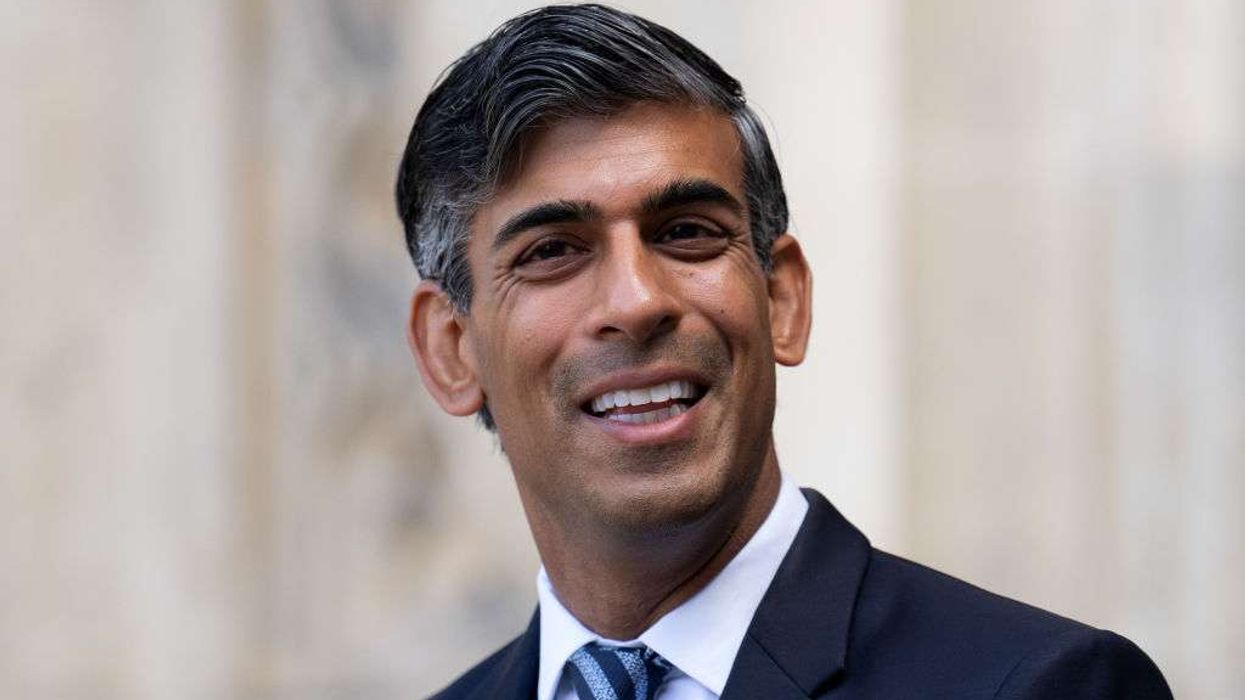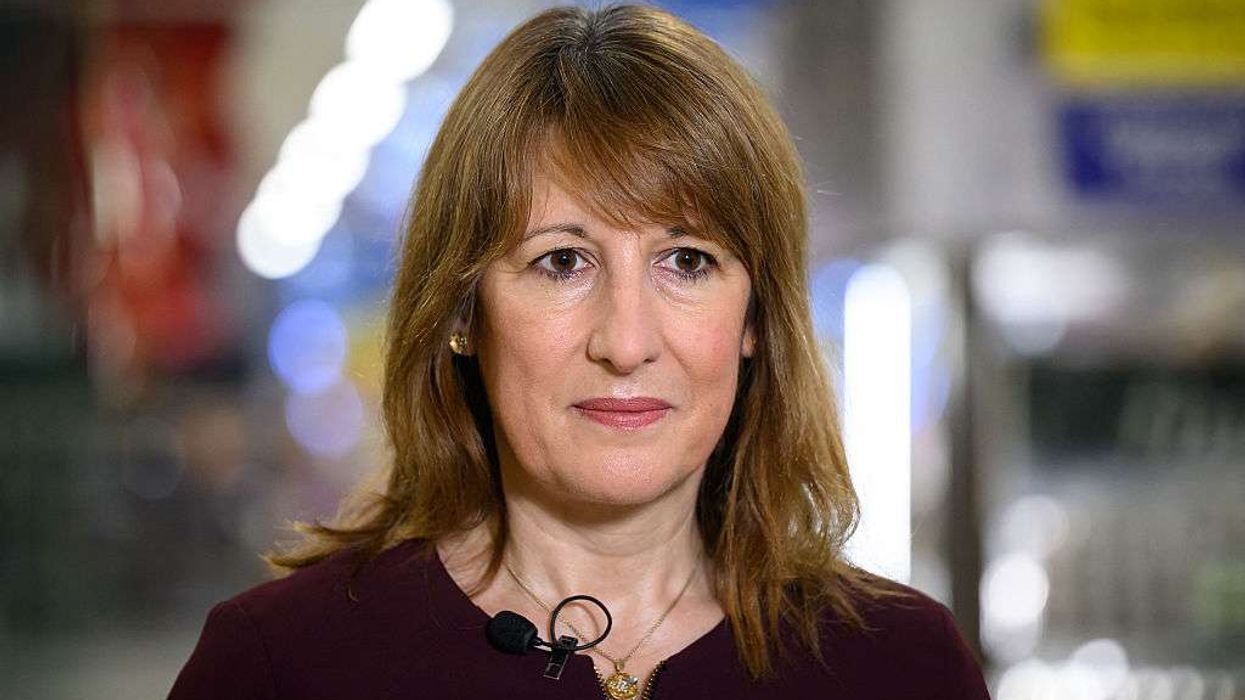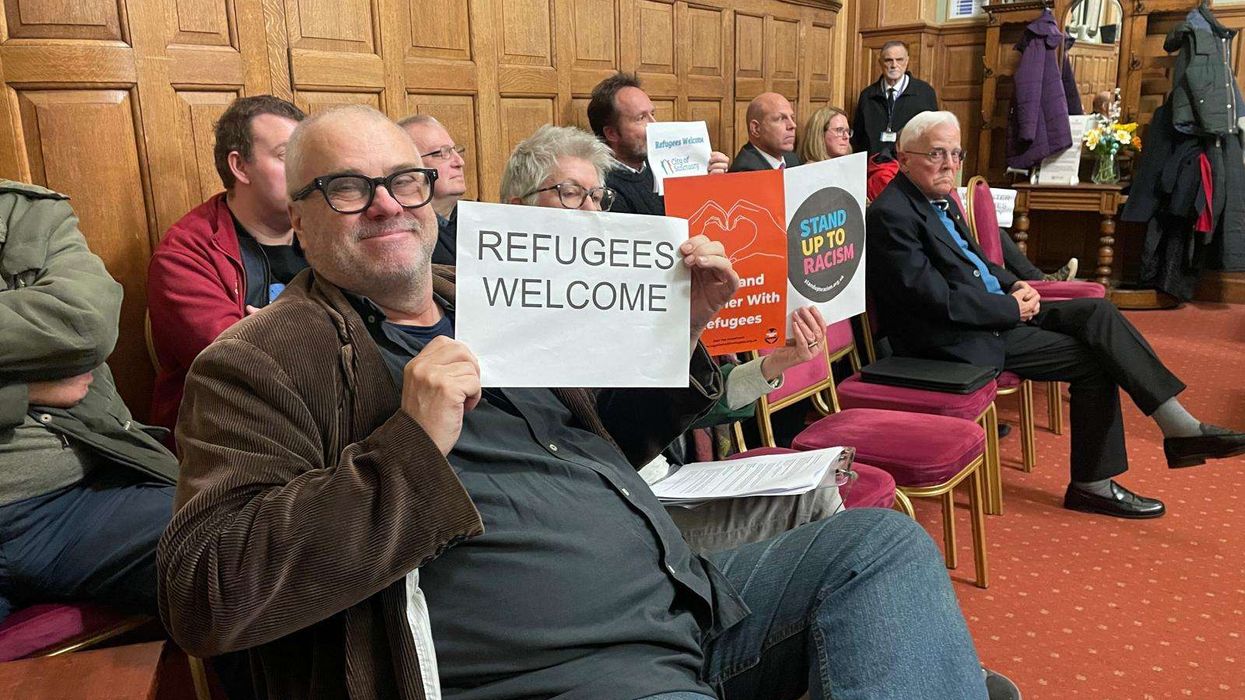Highlights:
- Flags more visible across England amid migration debate
- Protests outside hotels for asylum seekers linked to flag displays
- Councils removing some flags citing safety concerns
THE RED and white St George's Cross and the Union Jack have been appearing across England in recent weeks. Supporters say the move is about national pride, while others see it as linked to rising anti-immigration sentiment.
The flags have become more visible during a politically charged summer in Britain, with migration dominating public debate. According to YouGov’s monthly tracker, immigration has overtaken the economy as the main concern for voters since the end of June.
"It's our flag, we should be able to feel proud to fly it," said Livvy McCarthy, a 32-year-old bartender, near a pedestrian crossing in the Isle of Dogs, London, painted in the design of the English flag. "Every other country can do the same, so what's the problem?"
While flags are often displayed on public buildings for sporting, royal or military events, they rarely appear widely in the streets.
ALSO READ: Anti-migrant protests continue across UK after asylum reforms announced
The recent rise in flags coincides with protests outside hotels housing asylum seekers. The movement, spread on social media, is linked to Birmingham-based group the Weoley Warriors, who have encouraged the display of more flags.
On their fundraising page, the Warriors describe themselves as "proud English men" who want to show how "proud we are of our history, freedoms and achievements". They have not given further details about their motives.
In the past, both the Union Jack and the Cross of St George have been used by far-right groups. The National Front adopted the Union Jack in the 1970s, while the Cross of St George was carried by football hooligans and extremist groups.
For some, the flag is a symbol of patriotism. For others, including people from migrant and ethnically diverse communities, it raises concerns.
Stanley Oronsaye, a 52-year-old hospitality worker from Nigeria who lives in the Isle of Dogs, said people should be free to express their views on migration within the law. But he also said: "The worry is from the fact that if it escalates it can turn into something else. It's worrisome when... nationalism is allowed to take a different tone."
ALSO READ: Anti-migrant protests flare across UK as rival groups clash in Epping
Jason, 25, who gave only his first name, said the flags were about "getting English culture back". "We are seeing more of other cultures than we are of our own now," he said in Tower Hamlets.
Protests outside hotels
The hotel protests grew after an Ethiopian asylum seeker staying at a hotel north of London was charged last month with sexual assault, which he denies.
This comes after riots last summer in several cities targeting asylum seekers and minorities. Those riots followed the murder of three young girls at a Taylor Swift-themed event, with false social media claims blaming a radical Islamist immigrant.
Prime minister Keir Starmer at the time described the violence as "far-right thuggery".
Asked about the flags, a spokesperson for Starmer said the prime minister views them as symbols of national heritage and values but accepts that some use them to provoke conflict. He recognises public frustration over the economy and pressure from illegal migration, the spokesperson added.
ALSO READ: New sanctions to hit people smugglers and their enablers
Some local councils have removed flags, citing safety. Tower Hamlets council said flags may be displayed on private property but would be removed from council infrastructure. "We are aware that some individuals putting up flags are not from our borough and that there have been wider attempts by some coming from outside our borough to sow division," it said.
The display of flags has been backed by politicians, including Nigel Farage of Reform UK and Conservative politician Robert Jenrick, who called councils removing them "Britain-hating councils". He posted on X: "We must be one country, under the Union Flag."
US billionaire Elon Musk also posted a picture of the English flag on X on Tuesday.
pic.twitter.com/JtQZlWvY0z
— Elon Musk (@elonmusk) August 26, 2025
In the Isle of Dogs, flags were seen near the Britannia Hotel, a government-designated site for asylum seekers and the location of protests.
Local resident Shriya Joshi, 26, from India, said: "If it's a message to the immigrant community or anything of that sort, then it's not that pleasant."
(With inputs from agencies)
